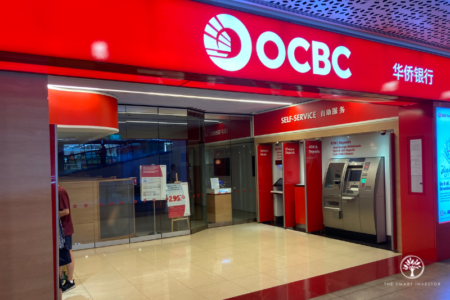Rising share prices can make investors uncomfortable.
If you think the above statement sounds strange, then hear me out.
Sentiment has improved tremendously over the last few months as various vaccines have blunted the adverse impact of the COVID-19 pandemic.
As a result, share prices of many REITs have also run up.
For instance, Frasers Centrepoint Trust (SGX: J69U), or FCT, has jumped 23.2% in one year.
And Parkway Life REIT (SGX: C2PU), a well-known healthcare REIT, has seen its unit price increase by 24.5% since April last year.
If you are an income-seeking investor who has been waiting for the right signal to buy into REITs, these rising prices may make you hesitate.
Are REITs becoming too expensive to buy?
Or is there still a long runway for growth that you can latch onto?
Low interest rates
Governments around the world have sharply lowered interest rates in response to the crisis.
As REITs thrive on debt financing, this news bodes well for the sector.
The decline in rates becomes evident when REITs refinance their borrowings, as with the case of Mapletree Commercial Trust (SGX: N2IU), or MCT.
MCT’s weighted average all-in cost of debt has declined from 2.96% at end-2019 to 2.51% at end-2020.
Lower financing costs will translate to higher amounts of distributable income for REITs, all things being equal.
Over time, paying less to banks will provide a boost to distribution per unit (DPU) for REITs that can obtain attractive rates.
As interest rates are poised to remain lower for longer, REITs can benefit from this tailwind for the foreseeable future.
Acquisitions to the rescue
Low interest rates convey another benefit to REITs — it allows them to borrow cheaply to acquire properties that add to their DPU.
And there has been a slew of acquisitions announced in the last year by a variety of REITs that seek to take advantage of these low rates to gear up.
Keppel REIT (SGX: K71U), a commercial REIT, announced the acquisition of Keppel Bay Tower last December.
A month before that, CapitaLand Retail China Trust (SGX: AU8U) announced a massive acquisition of five business parks and a stake in Rockwell Square worth S$822.4 million.
Not to be outdone, Mapletree Logistics Trust (SGX: ME8U) also went on a billion-dollar acquisition spree last October.
Clearly, the low interest rate environment is benefitting these REITs, allowing them to snap up attractive properties while keeping financing costs affordable.
A sustained recovery
The run-up in share prices is not unjustified, either.
COVID-19 measures have been eased gradually in Singapore, leading to increased footfall in shopping malls. Retail REITs can breathe a sigh of relief as shoppers throng stores once again.
Telecommuting requirements have also been relaxed, thus easing pressure on commercial property REIT managers who were worried over office space requirements.
With improving demand for goods and services as lockdowns ease, industrial REIT tenants should also see their profits and cash flow rising, enabling them to better service their leases.
Looking ahead, the recovery should continue to be sustained but will occur unevenly as it depends on the trajectory of the pandemic.
Investors should look to REITs with strong sponsors that are not only able to provide a financial lifeline in case the REIT needs it, but also have a pipeline of properties that can be injected to grow the REIT’s property portfolio.
Get Smart: Distribution yields are fair
When it is all said and done, the question remains …
… are REITs expensive today?
One measure to use is the REIT’s distribution yield.
If a REIT is indeed trading at expensive valuations, its distribution yield will be very low.
For FCT, trailing 12-month distribution yields stands at 3.6%, while for Parkway Life REIT, it is 3.3%.
These yields are fair considering the potential for further DPU upside as these REITs look forward to a global economic recovery.
Besides, REIT acquisitions can also boost DPU over the long run.
If you have a five-year time horizon, then REITs will not seem expensive right now.
There is still significant room for many REITs to gear up for further acquisitions, while the recovery will help to gradually boost DPU and improve the distribution yield.
In a nutshell, REITs remain an attractive asset class to own for the long-term despite the increase in unit prices over the last year.
In our latest special FREE report, we cover eight stocks, consisting of a mix of blue-chips and mid-cap companies, that we believe can ride the recovery and offer investors a great mix of both growth and income. Click HERE to download the report, 8 Singapore Stocks for Your Retirement Portfolio, for FREE now!
Don’t forget to follow us on Facebook and Telegram for some of our latest free content!
Disclaimer: Royston Yang does not own shares in any of the companies mentioned.




